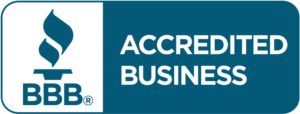If you are unable to pay your credit card bills you should create a budget, contact your lenders and consider bankruptcy as a debt relief option.
It is easy to find yourself buried under a mountain of credit card debt. A sudden illness, a loss of a job or unexpected emergency can easily make you rack up charges on your credit cards after depleting your savings. Pretty soon you are faced with high balances that are only growing because of the compounding interest on the money you borrowed. Rather than ignoring the problem and hoping it will somehow go away, you should take steps to prevent financial ruin when you cannot make the minimum monthly payments on your credit card bills.
Create a budget to cut expenses
If you find yourself constantly short of funds to make even the minimum payments on your credit card bills, you should get a clear picture of your finances by creating a monthly budget. You should list all of your recurring monthly expenses such as rent or mortgage payments, utilities, food, transportation, insurance, cable television, internet service, cellphone service and similar bills. If, after looking at where your income goes each month, you find that you do not have enough money left over to make the minimum payments on your credit cards, you can look at your budget to see where you might cut back. You may consider canceling your cable or internet service or changing to a less expensive cellphone plan, for example.
Speak with creditors
Communicating with your creditors may help prevent lasting damage to your finances. If you simply let your bills go unpaid, your creditor will charge you late fees and eventually report your non-payment to credit reporting bureaus. Your bills may even go to collections, and you could be subject to creditor harassment.
However, if you contact your creditor to explain your situation and let them know that you are not simply ignoring your bills, you can find out if it is possible to negotiate different payment terms. You can request a hardship program with lower payments and waived late fees. Often, creditors will not want to reduce the amount they could collect from you, but the only way to find out if it is possible is to ask.
Use extreme caution when speaking with your creditors, however, because you do not want to give your creditors information that they can use against you. Your creditors may try to trick or bully you into making payments that you cannot afford or granting them access to your accounts.
Consider debt relief options
If your creditors are unwilling to negotiate, or your debt is simply too large for you to be able to repay through a hardship program, you may want to consider bankruptcy as another debt relief option. You can use bankruptcy to discharge your unsecured debts, such as credit card bills, allowing you to get back on your feet and move forward without the burden of your crushing debts. If you have questions about whether bankruptcy is the best option for you, speak with an experienced bankruptcy attorney who can advise you about your specific circumstances.



Better Business Bureau
Bankruptcy Practice Spotlight
If you are facing a possible foreclosure, I can take my two-plus decades of experience to help you save your house.

I understand how stressful the prospect of losing a house can be and am committed to working one-on- one with you to understand all details involved in your financial situation.

